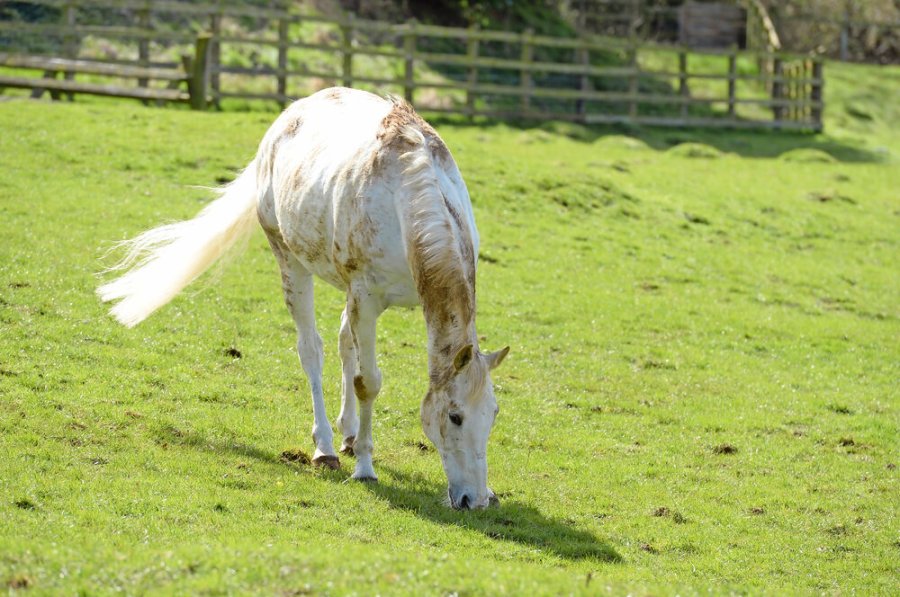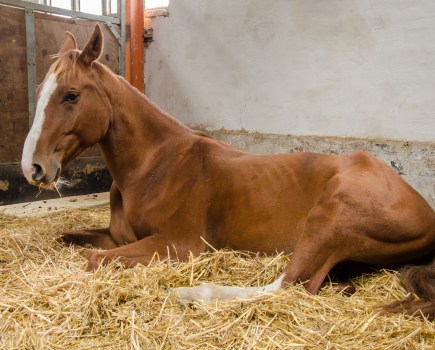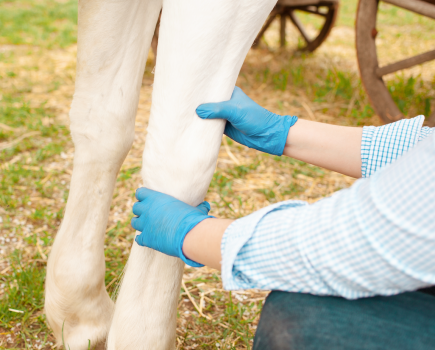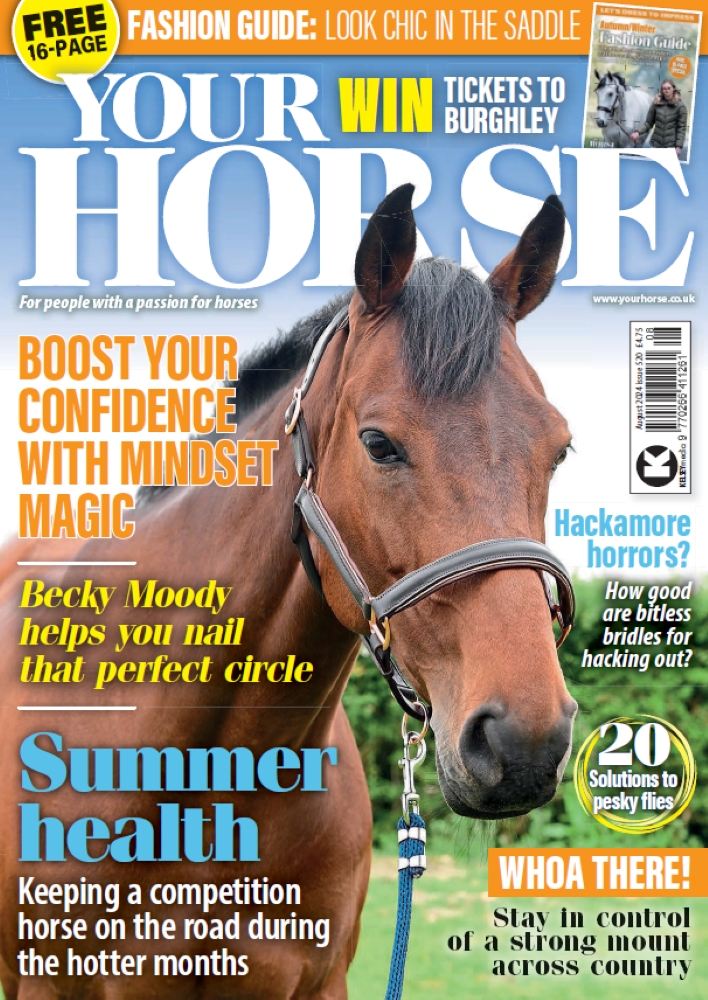Joint problems in an older horse can either keep him off games or force him into retirement. Vet Esther Rawlinson from Boehringer Ingelheim Animal Health explains how to keep veteran horses’ joints healthy.
To keep our horses sound and in work they need healthy joints. But joint problems are a common cause of lameness and all horses are at risk of developing joint disease, especially as they get older.
A common form of joint disease in older horses is arthritis. This is a progressive condition that can cause ongoing problems and, in some cases, may force your horse into premature retirement.
Arthritis is also referred to as degenerative joint disease (DJD), or osteoarthritis. Careful management and appropriate treatment is important to minimise the impact of this condition on older horses, help to slow down progression of the disease, and maintain soundness.
What causes a healthy joint to become arthritic?
Everyday wear and tear of the joints is the cause of arthritis. Some wear and tear is inevitable, but factors such as conformation, previous injury, weight, exercise and genetics will influence whether an older horse will develop signs of arthritis.
How can I keep my horse’s joints healthy?
Early investigation and treatment can lead to better recovery in cases of arthritis, so if you’re concerned about your horse’s mobility, contact your vet for advice.
Maintain a healthy weight
Being overweight puts excessive strain on the joints so it’s vitally important to manage your horse’s weight throughout his life.
Weigh tapes can help you to monitor any changes, and online tools can help you to assess body condition and fat scores.
Exercise
Keeping your horse fit with a regular exercise regime is important and regular turnout is also helpful to promote gentle exercise. Ensure that the workload is appropriate and try to keep it consistent.
A horse with joint disease may no longer be able to perform at the level he used to, but he may be happy and sound with a less intense workload.
It’s important to understand, though, that even with good management and appropriate treatment, the signs of arthritis are likely to progress over time and factors such as the weather or other health conditions may affect how your horse copes.
Nutrition
A balanced diet will help to keep your horse in the best possible shape. As horses age, their digestion may become less efficient, so your horse may require changes to his feed in order to keep him in tip-top condition.
Joint supplements are popular and can be useful to support joint health by providing a dietary source of key nutrients that help to maintain normal joint function.
Supplements containing green-lipped mussel extract provide glycosaminoglycans (including chondroitin sulphate) to help support joint health.
Monitor his needs
There are many things you can do to help support your horse’s joints and keep them sound into his golden years.
Regular monitoring and reviews with your vet are important so that you can adapt your weight and exercise management according to your horse’s needs.
For more advice about managing arthritis and looking after your horse’s joints, read the full article in our latest issue.
Don’t miss the latest issue of Your Horse Magazine, jam-packed with training and veterinary advice, horse-care tips and the latest equestrian products, available now.









